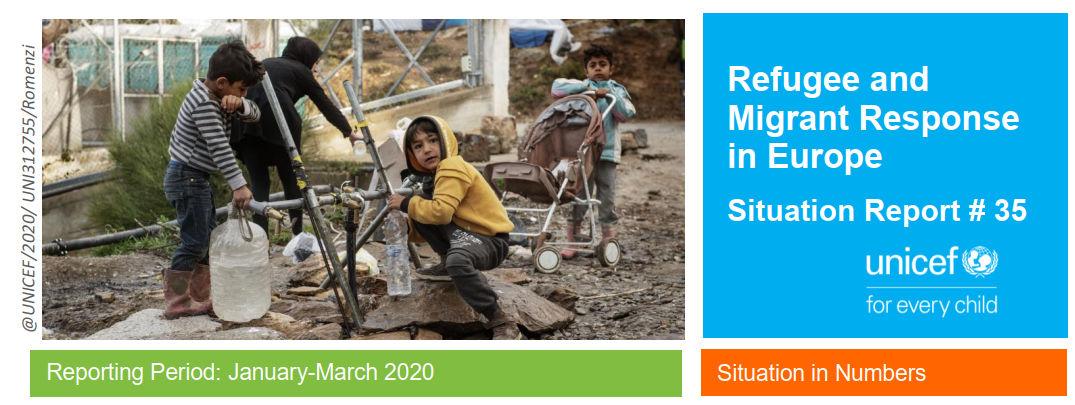
Submitted by Di Kennedy on Tue, 14/07/2020 - 10:25
COVID-19 Fundraising Appeal
The coronavirus disease 2019 (COVID-19) pandemic has triggered an unprecedented global health, humanitarian, socio-economic and human rights crisis, exacerbating the vulnerabilities of affected children. Since the outbreak began in December 2019, the coronavirus has spread to over 215 countries and territories, with over 247,500 reported deaths and 3.6 million confirmed cases.1 While children seem to be less vulnerable to the COVID-19 virus itself, the collateral impact on children is considerable. UNICEF is revising its COVID-19 appeal2 to meet the needs of children, communities, health systems and health structures, protect against the disease and address its immediate health and socio-economic impacts. https://www.unicef.org/appeals/covid-2019.html
Highlights
-
Children continued to make up a quarter of all refugees and migrants arriving in Europe through Mediterranean migration routes in 2020. As of March 2020, nearly 52,000 refugee and migrant children were present in Italy, Greece and the rest of the Balkans.
-
In 2020, UNICEF ensured nearly 15,700 children could access psychosocial support and case management, while 16,600 could follow formal and non-formal education classes in Italy, Greece and the rest of the Balkans.
-
Over 3,300 women, girls, boys and men benefited from enhanced GBV prevention and response services, while 518 frontline practitioners had their skills and knowledge on child protection expanded in Greece, Italy, Bulgaria, Serbia, Bosnia and Herzegovina and Montenegro.
-
Although there are only a few confirmed cases of Covid-19 within the migrant and refugee population in the region as of March 2020, the rapid spread of the pandemic across Europe has been deeply concerning for the tens of thousands of people, including children, staying in sub-standard and overcrowded reception and accommodation centres with limited access to WASH facilities and basic services, especially on the Greek islands.
Situation in Numbers
- 13,400 Number of arrivals in Europe through Italy, Greece, Spain and Bulgaria in 2020 (UNHCR, 10 April 2020)
- 3,250 Estimated number of children among all arrivals through Greece, Italy, Spain and Bulgaria. Around a third of them are girls. (UNHCR, 10 April 2020)
- 52,000 Number of estimated children present in Greece, Italy, Bulgaria, Serbia, Bosnia and Herzegovina, and Montenegro (UNICEF, 31 March 2020)
- 11,930 Number of unaccompanied and separated children registered in Greece, Italy, Bulgaria, Serbia and Bosnia and Herzegovina (UNICEF, 31 March 2020)
Full report: here
